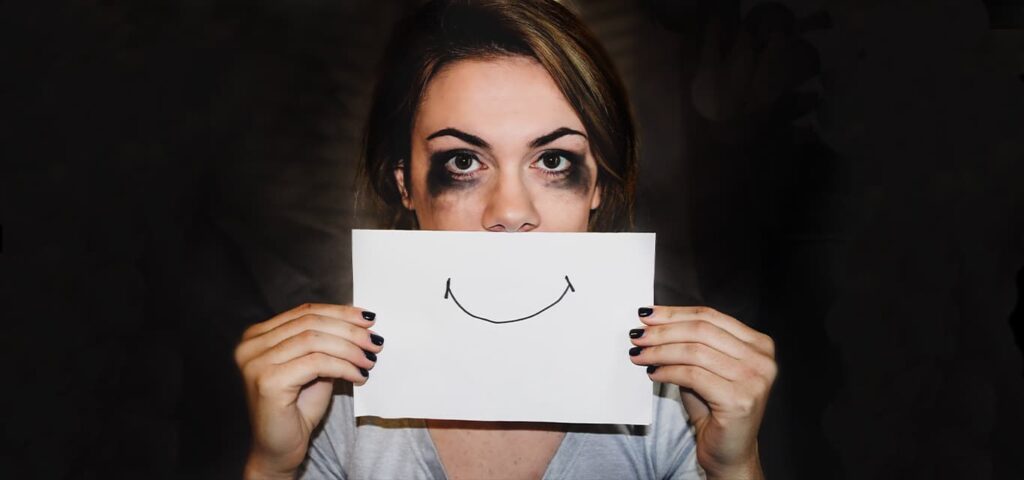Depression, according to the National Institute of Mental Health, is a mental disorder that affects how you feel. It can also affect your body and thoughts. You may feel down or sad, not want to do things that used to be fun for you, sleep too much or not enough, and not have an appetite. If these symptoms are happening often over an extended period (at least 2 weeks), it could be clinical depression.
Contents
- 1 Understanding Depression
- 1.1 Types of Depression
- 1.2 Symptoms
- 1.3 Reasons
- 1.4 Depression In Men
- 1.5 Depression In Women
- 1.6 Developmental Stages Of Depression In Children And Adolescents
- 1.7 Diagnosis of Depression
- 1.8 Treatment for Depression
- 1.9 Therapies For Depression
- 1.10 Medication Vs Psychotherapy
- 1.11 Risk Factors Of Depression
- 1.12 Tips To Manage Depression
- 2 Conclusion
Understanding Depression

Depression is a disease that influences how you feel. It may also have an impact on your body and thoughts. You could be sad or depressed, unwilling to engage in previously enjoyable activities, sleep too much or not enough, and lack a desire to eat. If these symptoms occur frequently over a long time (at least two weeks), it could be clinical depression.
Types of Depression
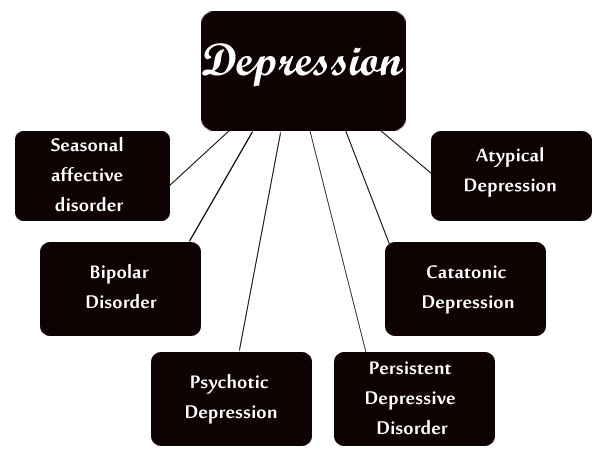
There are several types of depression.
- The most common type of clinical depression is a major depressive disorder. It occurs when a person feels sad, has a loss of interest in activities they used to enjoy, or both for at least two weeks consecutively.
- Persistent depressive disorder is another form that lasts longer than two years and causes problems with daily life function.
- Seasonal affective disorder is an extreme case of depression during the winter months. It’s a form that occurs from the lack of sunlight and typically goes away when spring comes around.
- Bipolar disorder can be classified as major depressive or manic episodes, which are periods where you feel extremely happy and have little need for sleep to function.
- Depression can also be a psychotic episode. This means that you may have hallucinations and delusions which are signs of psychosis.
- Pregnancy and postpartum depression can happen to a woman after she has given birth. It’s when the hormones from pregnancy change mood-regulating neurotransmitters in your brain.
- PMDD (premenstrual dysphoric disorder) is a more severe form of PMS (pre-menstrual syndrome). It’s when you experience symptoms such as irritability, mood swings, and anxiety.
- Situational Depression is when you are unable to find a reason for your depression. It’s brought on by external events that may bring out depressive symptoms, such as the death of someone close or having financial problems.
- Atypical Depression is another version of clinical depression. It’s when you sleep and eat more than normal, gain weight, become noticeably irritable or tearful for no apparent reason, and have distorted self-perception.
- Treatment-Resistant Depression is when you don’t respond to treatment or medications.
Symptoms
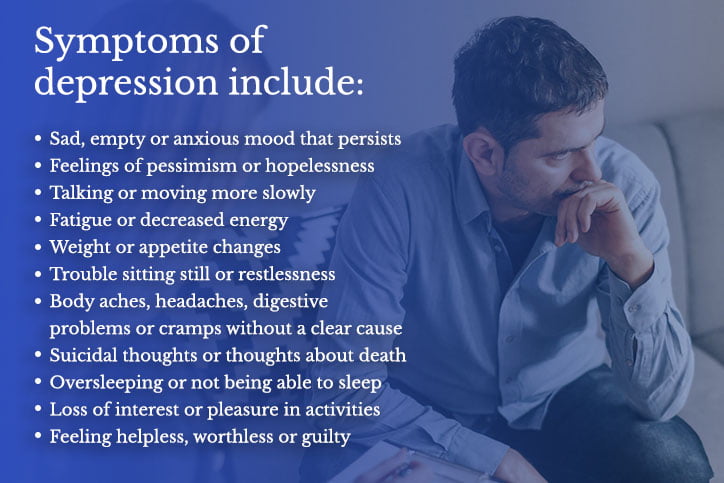
There are several symptoms related to depression.
- Depression can be seen with changes in appetite
- weight loss or gain, insomnia
- oversleeping,
- overall feelings of sadness and despair
- lack of interest in activities you once enjoyed for an extended period (two weeks)
- losing concentration on things that were important to you before this happened
- thoughts of suicide or death
- feelings of guilt
- worthlessness
Reasons
Many factors can lead to depression.
- People who have a family history of mental illnesses, such as bipolar disorder and schizophrenia might be more likely to get it themselves.
- Life events like the loss of a loved one, financial problems, or even divorce can lead to depression. If you are feeling sad or down, talk to someone about it.
- Hormones in your body can change how your brain makes chemicals that make you feel happy or sad. Most of the time, these changes happen during puberty, when you give birth, after menopause (when you no longer menstruate), and before menopause.
- Depression can also be triggered by illnesses like cancer, AIDS, Parkinson’s disease, or Alzheimer’s. Some medications are linked to depression as well including steroids and some birth control methods.
- Substance abuse of drugs or alcohol is another cause for depression that needs treatment to make a full recovery.
Depression In Men
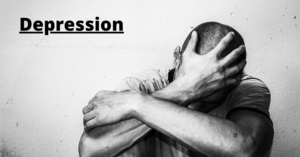
Men are more likely to have thoughts of suicide, drink alcohol, or use drugs compared to women. This is because they try not to show their feelings and may feel ashamed for having depression. If you have depression, you might not want to do things that you used to enjoy. But this doesn’t mean that you will gain weight. Some people with depression might want to eat more, but other people with depression might not want to eat anything at all.
Older Men: Depression among elderly people is the leading cause of disability worldwide due to increased age (>60 years). It is estimated that about 20% of older adults have a major depressive disorder, which is twice the rate in younger adults. However, it doesn’t mean you should ignore symptoms if you are younger.
Depression In Women
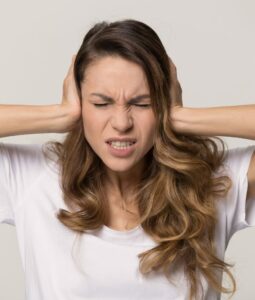
It has been found that women are more likely to have depression compared to men, but it’s not clear why this is the case. Some women may get PMDD or postpartum depression after having a baby. These can be treated with medication or talk therapy. Symptoms of PMS are feeling tired, sad, and anxious. You might also feel bloated before your period starts. Postpartum depression is when you are really sad for a long time after having a baby. This may happen in the first few weeks or up to six months. It affects about 13 – 23% of new mothers worldwide; however, are some factors that increase your risk of developing this condition.
Developmental Stages Of Depression In Children And Adolescents
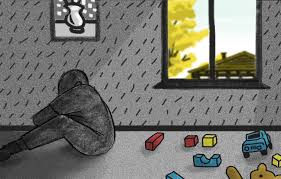
Some children and teens have depression. It is estimated that about 0.49% to 17% of them have it, with the highest rates among those who are 16-24 years old (11%). Around 20% of kids with this illness are recognized by their parents or doctors. This means that they are not getting the right treatment. This needs to be diagnosed so they can get the proper treatment for recovery.
Diagnosis of Depression
To receive a diagnosis for depression, you must meet five or more of the symptoms listed above.
A trained medical professional will review your symptoms and ask about any possible physical or psychological issues that may be causing them. They’ll also want to know if anyone in your family has had depression before.
They’ll usually do a physical exam to make sure it isn’t caused by another illness, such as hypothyroidism (low thyroid hormone) or vitamin D deficiency.
Treatment for Depression
There are many treatment options for depression depending on how severe it is and what you like best. Medication, psychotherapy, exercise, meditation, and healthy eating habits. You need to see a doctor. They can help you if something is wrong with you. Different people have different problems, so the doctor should know what to do for them. I would like to be happy again. It can be hard to get rid of the blues. But if you try, then you will succeed. It will not be easy, but it is possible!
Therapies For Depression
There are many therapies available to treat depression.
Cognitive Behavioral Therapy (CBT)
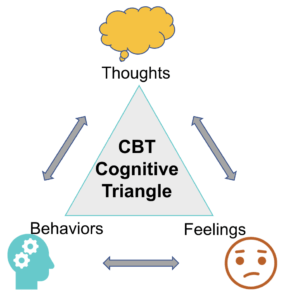
Cognitive Behavioral Therapy helps people understand how their thoughts affect how they feel. The patients learn what they are thinking and can change those thoughts so that they feel better. This program teaches how to cope with problems. It also shows you how to solve them.
Some people find it helpful to participate in group therapy with others who suffer from similar conditions. Going through difficulties with friends who have had the same problems helps you to feel better. Friends will support each other and make you feel better. Therapy is good for you because it makes you feel better. You see your progress and other people help you too.
Medication
Medication is a really good treatment for depression. This has been around since the 1950s and one type of it is called SSRIs. They are used to treat people with anxiety, panic disorder, obsessive-compulsive disorder, social phobia, and premenstrual dysphoric disorder or PMDD.
Antidepressants
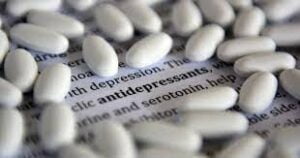
Antidepressants work by changing brain chemicals called neurotransmitters that affect your mood. One type of chemical called a neurotransmitter helps to control sleep, appetite, and sexual desire. When people have depression, the chemicals are not as much as they should be. SSRIs are not addictive when taken as directed. They have few side effects when taken over time. That’s why they can be used to treat depression if it is difficult for someone to function without treatment.
Psychotherapy

The goal of psychotherapy is to help people learn how to better cope with things that might make them feel sad. They can do these things so they can feel strong in the present and for the future. Therapists usually meet with patients once a week for 30 minutes. Patients can talk about whatever is bothering them, even if it’s not related to what brought them in for treatment.
Medication Vs Psychotherapy
While medication can help you feel better right away, it may not be as helpful over a long period. Therapy is a good way to feel better because you have someone who knows what you are going through and can help you overcome problems. Medication can change the chemical balance in your brain and might help if you have depression. But it doesn’t address any of the things that may cause or make you feel worse.
Therapy for depression is much better if it is done with someone who knows how to help you. They can teach you about things that make you feel bad and teach you different ways of doing those things so that those feelings won’t happen again. Life will go on if we try hard enough. You just have to find a way through those tough times instead of letting yourself fall into old habits that keep dragging us down!
Risk Factors Of Depression
People who have bipolar disorder or schizophrenia are more likely to also have depression. This is because people with these diagnoses are more likely to have family members with the illness. This illness can be genetic. Some people need to take medicine if their parents had clinical depression, even if they were able to recover without taking medicine. It’s not always best to try this alone. It is hard to manage without treatment. This will make the problem worse than when you first started.
Suicidal Tendencies
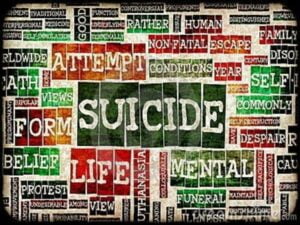
Most people with depression have thoughts of suicide. Keep sharp objects away from them so they can’t hurt themselves. Depression is a serious problem. People can help you if you ever feel this way, no matter how long it has been since your last episode.
Depression affects 18% of adults in America. 50-60% of people who have depression, though, don’t get treatment for it. It’s OK to take charge and start getting better today instead of letting things get worse by avoiding any form of professional help needed for overcoming depression once and for all! You are not alone in this battle to help yourself without medication or other resources. Let’s start making positive changes today!
Tips To Manage Depression
Depression is a serious illness that should not be ignored. There are many different ways to manage depression and help yourself feel better without medication, but it’s important to keep in mind that some people need medicine or other resources if their depression doesn’t improve at all after trying therapy for a few months.
- Do something that gets you moving. This could be yoga, walking, jogging, taking the stairs instead of an elevator, gardening. If you can’t do this for 30 minutes a day, try doing it for 10-15 minutes and add 5 minutes each day.
- Make sure to eat healthy food. Eat five servings of vegetables every day.
- You need to get enough sleep so you stay healthy. When you do not sleep, it is hard to think. It can be hard to concentrate and pay attention to things. If you need help sleeping better, try not napping during the day and limit your caffeine. Do something relaxing before bed like exercising or reading a book in dim light.
- There are many ways to feel good about yourself without focusing on looks. It can be hard when you compare yourself with others. This is because everyone is different, so someone else can’t look exactly like you. Don’t worry about your clothes or makeup, just focus on all the things that make you unique!
- Go out and socialize with people who care about how you feel even if it’s hard to leave the house at first. If there are any friends from before who have been supportive of you through hard times, it can be helpful to call them up if you are having a rough day.
Conclusion
In addition to treatments, there are many things you can do on your own that may help with depression. If you’re feeling down or have many depressive symptoms, try these tips and see if they work for you. Take care of yourself by eating nutritious foods and getting enough sleep each night. Exercise is also important because it makes us feel better about ourselves.
It can help take away any negative feelings we might have from depression. Socializing is another important aspect; find ways to enjoy time spent with friends or family members who will listen without judgment when needed most. Lastly, but certainly not least, take advantage of all the resources available online such as blogs like this one! The suggestions above can be just the help you need to feel better about your life and circumstances. Having friends who know what you are going through can really help. You can ask them for support when you feel depressed.
For more information, please contact MantraCare. Depression is a mental illness characterized by persistent feelings of sadness, hopelessness, and loss of interest in daily activities. If you have any queries regarding Online Depression Counseling experienced therapists at MantraCare can help: Book a trial Depression Therapy session
